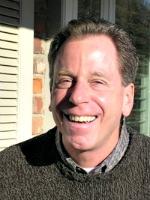During the mid-1980s, comedian Martin Short had a recurring character on Saturday Night Live named Nathan Thurm, an always-defensive defensive attorney. I couldn’t help but think of the character while watching Elon Musk being interviewed Sunday night by Lesley Stahl on 60 Minutes.
Like the Short’s character, who always appeared jittery while chain-smoking and making nervous facial expressions, Musk often looked uncomfortable during the opening segment of the perennially popular news program.

Musk called out the Securities and Exchange Commission, which recently charged the founder of Tesla with fraud when he used Twitter to announce the possibility of taking electric car company private. The case was settled with Musk paying a $20 million fine and leaving his role as chairman of the board of the manufacturer of the high-performance vehicles.
Stahl also questioned Musk about his recent unusual behavior, from smoking pot on a popular podcast to questioning the motives of one of members of the crew that saved the lives of the boys stuck in cave in the Philippines.
Musk has a rapid-fire voice, just like the SNL character Short portrayed while defending shady clients.

When Stahl asked about his a self-admitted compulsive personality and penchant for venting on Twitter, Musk rationalized: “No one is perfect.”
Musk flippantly defended several boastful but unfilled predictions about his company. He shrugged off Stahl’s questions and his Twitter use and increasingly unpredictable behavior as a manifestation of his stress while saving his company.
“I’m just being me. I mean, I was certainly under insane stress and crazy, crazy hours. But the system would have failed if I was truly erratic,” he said.
And Musk commented: “Twitter’s a war zone. If somebody’s gonna jump in the war zone, it’s, like, ‘Okay, you’re in the arena. Let’s go!’ “
It was only when Stahl asked about Musk’s childhood, the billionaire and founder of what is now Paypal changed his demeanor. He spoke of violence and nearly being beaten to death, and
It was an exchange ripe for analysis. Musk has changed the auto industry in his 14 years at Tesla. It’s an impressive accomplished by a manufacturer whose vehicle sales still represent only a fraction of the overall market.
But watching Musk on 60 Minutes was at times painful. He was simultaneous cocky and insecure. It wasn’t Martin Short, but it could have been. But unlike the comedian, Musk wasn’t funny. He was sad.
Article Last Updated: December 10, 2018.
